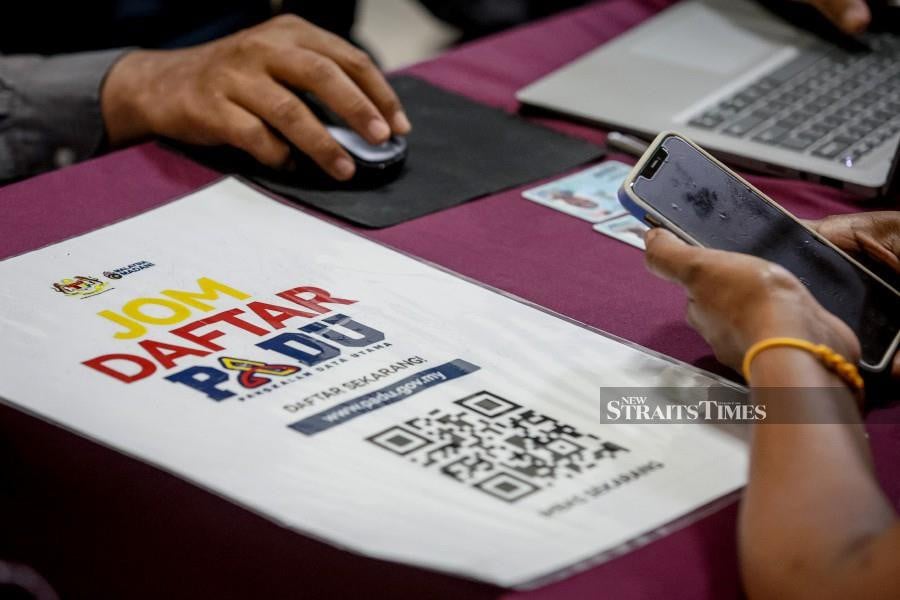KUALA LUMPUR: The current data collected by the Central Database Hub (Padu) by now should be sufficient for the government to decide on who would be eligible for subsidies.
It would have given the government enough information with a minimum threshold income to make the decision.
Economist Professor Dr Geoffrey Williams said that even though the current registration rate is around 30 per cent, the number is actually very good, given that it has covered around 50 per cent of Malaysian adults in just a short time.
"There are around 30 million Malaysians and 20 million are over 18 years old. So the target group is 20 million registrations because the 10 million children will have their data included in their parent accounts.
"If 10 million have registered by the March 31 deadline, this will be half of the adult population.
"We can understand if high-income people do not register because they feel they will not benefit, so if we remove the top 20 per cent, the target would be 16 million.
"So if we include everyone, we have a 50 per cent sign-up rate, excluding the rich, then it is 62.5 per cent. This is a very good rate in just three months," he explained.
A total of 10.61 million have registered with Padu since yesterday.
Geoffrey said given that the government has captured the data of a large fraction of Malaysians, they should be able to begin the process of targeted subsidies in stages.
"The government can now set a minimum threshold income of Universal Basic Income (UBI) based on the data.
"Those below this level can receive assistance while those above will get on with life as normal but will not receive assistance they do not need.
"Over time, all ad-hoc welfare assistance can be replaced by cash transfers to eligible recipients below the UBI level with less wastage, leakages, and corruption through agencies, middlemen, and bureaucracy," he said, adding that the government will also save money by excluding those who do not need help.
The Padu registration, Geoffrey said, will allow the government to treat people individually rather than as a group, making it more useful.
"Those in higher income groups will have already disclosed their income to the Inland Revenue Board and other databases.
"Padu will now have more accurate data on low-income groups, which would not necessarily be captured in other databases," he said.
Putra Business School economic analyst Associate Professor Dr Ahmed Razman Abdul Latiff said those in the B40 group who did not register may still be receiving assistance such as the Sumbangan Tunai Rahmah (STR) since their data is already there. But they might encounter difficulties in getting the soon-to-be-introduced subsidies.
"They (the B40) might be getting a basic amount of subsidies based on the existing data, but those who register with Padu might be getting more because of additional information on their household, such as the number of dependents and debt commitments," he said.





